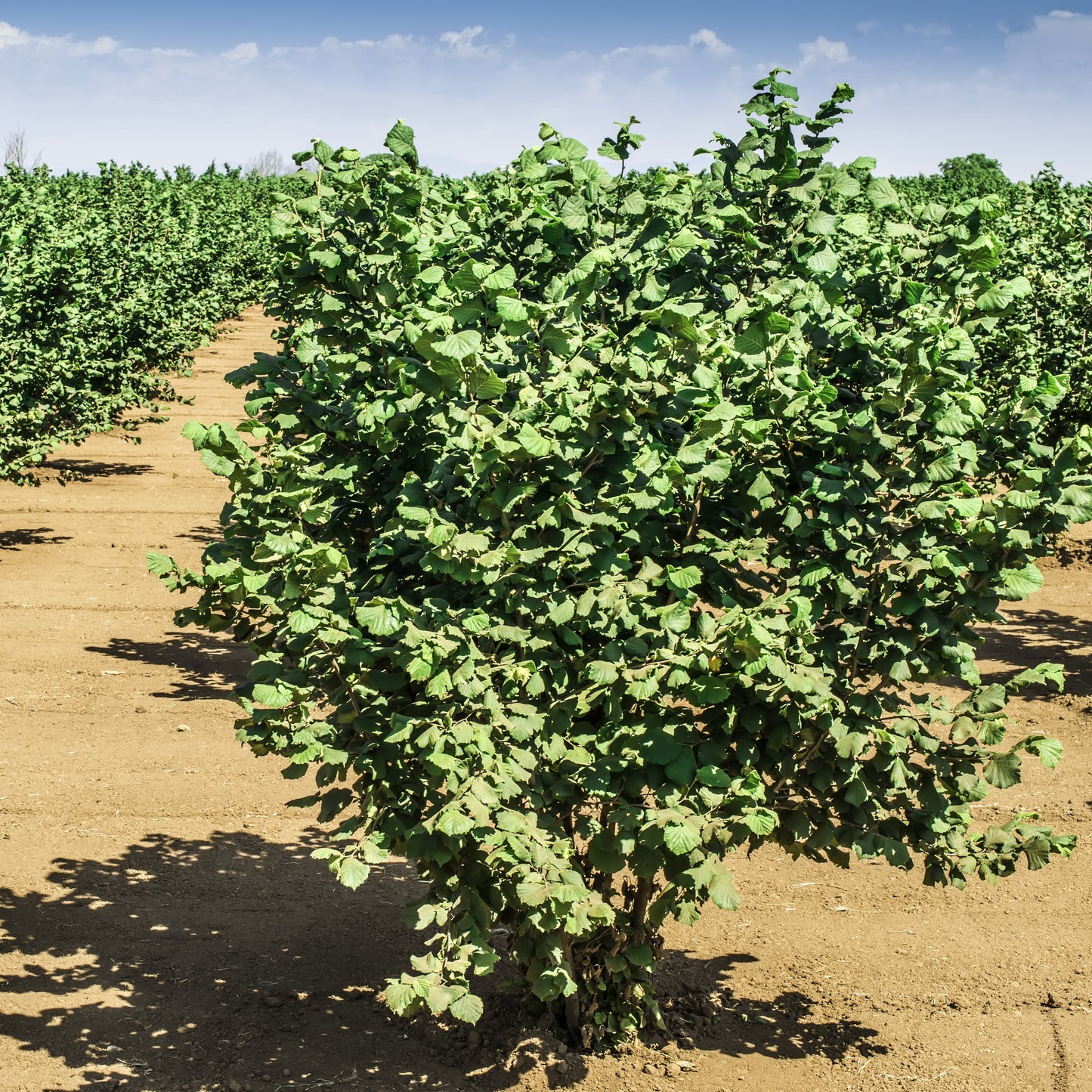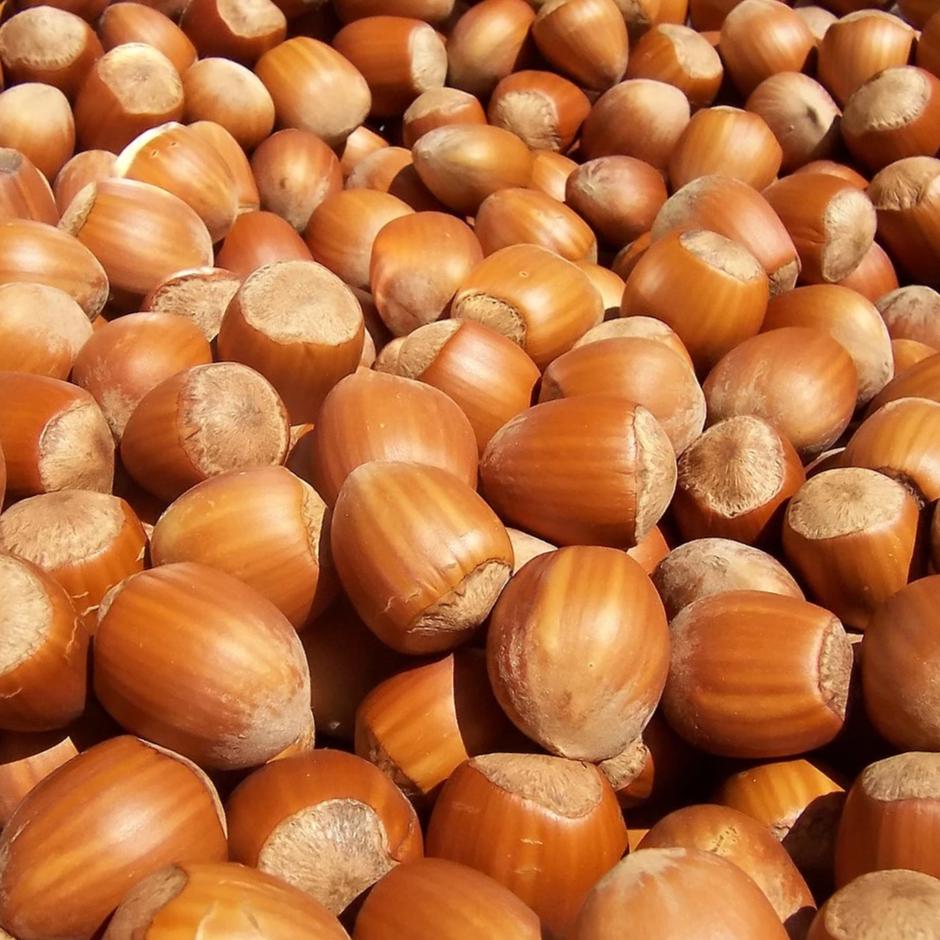Limited Quantities - Reserve Now For Fall
-
Beginner Zones 4-9

-

American Hazelnut Tree
American Hazelnut Tree
Couldn't load pickup availability
Corylus americana
American Hazelnut
The American Hazelnut is a vigorous, multi-stemmed native shrub that produces nutritious edible hazelnuts, ornamental catkins, and vibrant fall color. This highly adaptable species thrives across much of the U.S. and is valued for both its ecological benefits and edible rewards.
Excellent for edible landscaping, wildlife support, and restoration work, American Hazelnut adds texture, productivity, and year-round interest to any landscape. It is both wind- and insect-pollinated and can be planted in groups for increased nut production.
American Hazelnut Overview
| Attribute | Details |
|---|---|
| 🌿 Botanical Name | Corylus americana |
| 🏷️ Common Names | American Hazelnut, American Filbert |
| 🌳 Mature Height | 8–12 feet |
| 🌐 Mature Width | 6–10 feet |
| 📈 Growth Rate | Moderate to fast (1–2 feet per year) |
| ⏳ Lifespan | 30–50+ years |
| 🧊 USDA Zones | 4–9 |
| ❄️ Chill Hours | 800–1,200 hours |
| ☀️ Sun Preference | Full sun to partial shade (best nut production in full sun) |
| 🧱 Soil Type | Well-drained loam, sandy, or clay soils |
| ⚖️ Soil pH | Slightly acidic to neutral (5.5–7.0) |
| 💧 Water Needs | Moderate; drought-tolerant once established |
| 🌰 Nut Type | Small, sweet-flavored edible hazelnuts |
| 🌸 Flower Color | Male catkins (yellow), female flowers (reddish) |
| 🐝 Pollination | Wind and insect; plant two or more for best nut production |
| 🌿 Growth Habit | Multi-stemmed, suckering shrub |
| ↔️ Spacing | 8–12 ft between plants for nut production |
| 🏡 Landscape Uses | Edible gardens, wildlife borders, native plantings, hedgerows |
| 🧹 Maintenance Level | Low to moderate |
Environmental Benefits
🌰 Produces edible nuts for humans and wildlife
🪶 Offers dense cover and food for birds, squirrels, and pollinators
🌳 Stabilizes soils on slopes, woodland edges, and wild hedgerows
🧬 Increases biodiversity in both residential and restoration landscapes
Pros & Cons
| ✅ Pros | ⚠️ Cons |
|---|---|
| 🌿 Easy to grow and low-maintenance | 🌱 May sucker and spread if not periodically pruned |
| 🌰 Edible nuts enjoyed by people and wildlife | 🐿️ High wildlife interest can reduce personal harvest |
| 🐝 Provides wind and insect pollination support | ✂️ Occasional pruning needed for airflow and shape |
| 🌳 Great for edible and ecological landscapes | 💧 Requires supplemental water in drought when young |
| 🍁 Adds seasonal interest with colorful fall foliage | ❄️ Nut production varies based on pollination and winter chill |
Planting & Care Guide
🛁 Hydrate roots thoroughly before planting
🕳️ Dig a hole twice the width of the root ball; plant at soil level
🌾 Mulch 2–3 inches around base to conserve moisture and reduce weeds
💦 Water regularly during the first year, especially in hot months
✂️ Prune in late winter to maintain shape and remove older stems
🧪 Fertilize lightly in early spring with compost or balanced tree food
The American Hazelnut is a hardy, multipurpose native shrub that brings beauty, biodiversity, and bounty to your property. Whether planted for its tasty nuts, wildlife value, or fall foliage, this rugged and rewarding species is a perfect fit for native borders, edible hedges, or conservation-focused landscapes.
Share




